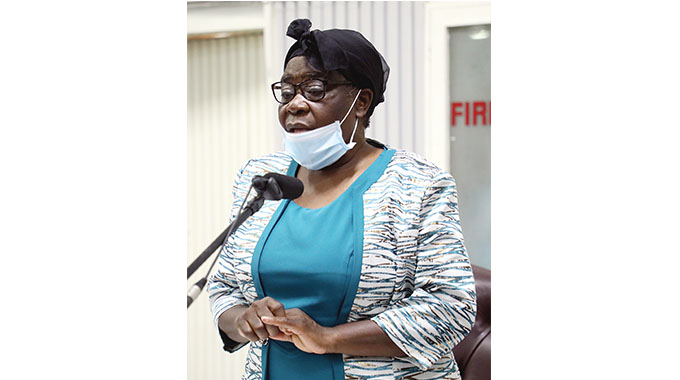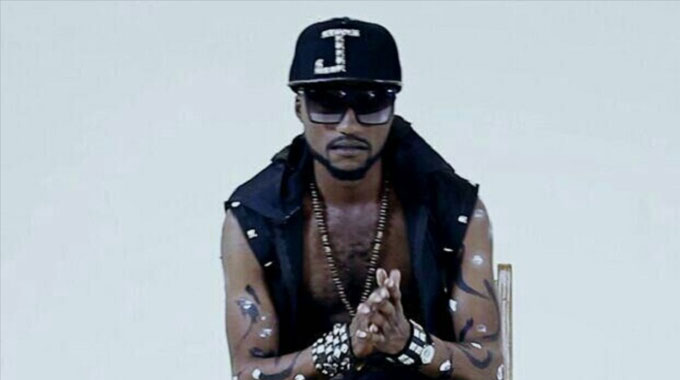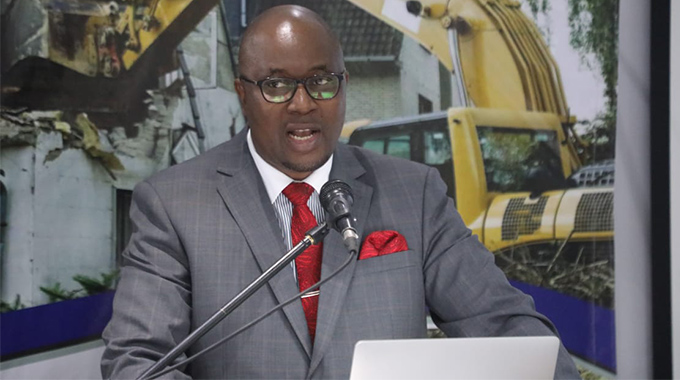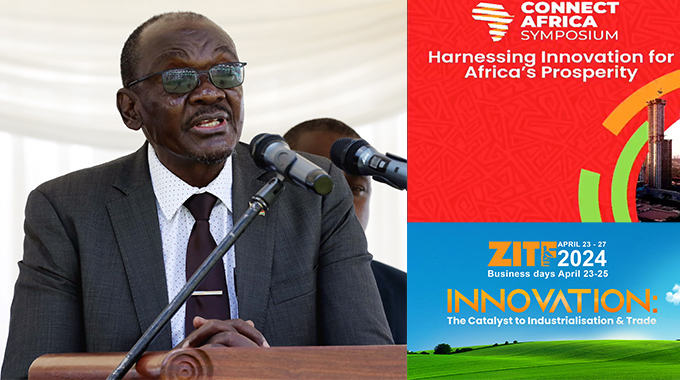High Court blocks Chief Mvutu’s potential successor

Leonard Ncube, Victoria Falls Reporter
The High Court has nullified nomination of Mr Sanders Mlotshwa as a potential successor to the late Chief Mvutu and ordered a restart of the selection process saying gender cannot be used as grounds to disqualify women from being chiefs.
Chief Mvutu, born Nyangayezinwe Mlotshwa of Monde area died in March 2014 aged 61.
The Mlotshwa family nominated his brother Mr Sanders Mlotshwa as his successor in December 2014 but the late Chief’s daughter Ms Silibaziso Mlotshwa, now aged 24, challenged that in court arguing that she is the one who should take over from her father.
The family is divided with one faction supporting Mr Mlotshwa saying it is against the Ndebele culture for a woman to succeed her father as chief while other family members back Silibaziso.
The District Development Cordinator’s office which backed Mr Mlotshwa’s nomination, had ruled that Ms Mlotshwa was ineligible as a woman.
Ms Mlotshwa, who was represented by Mr Thulani Ndlovu of Sansole and Senda Legal Practitioners challenged the DDC’s decision at the High Court and lost.
She then approached the Supreme Court which advised that a constitutional application be properly filed to determine the constitutionality of the Nguni customary succession principle excluding women from chieftainship on the basis of gender.
Ms Mlotshwa took the matter to the Constitutional Court which then advised her to file a mandamus application at the High Court citing Hwange DDC and Mr Mlotshwa as 1st and 2nd respondents respectively.
A mandamus is an application for legal compliance to a specific statutory duty or remedy to an unlawful action already taken.
Ms Mlotshwa asked the court to declare null and void, appointment of her uncle, compel 1st respondent to recommend her to the President as an appointee, failure of which a meeting be reconvened to nominate a successor to the throne and for the 2nd respondent to pay costs of suit. Bulawayo High Court judge Justice Maxwell Takuva who heard the matter said the first respondent failed to comply with statutory obligations by carrying out his duties in a discriminatory manner while the minutes that showed nomination of Mr Mlotshwa also do not indicate how he ended up being recommended as the possible Chief Mvutu.
Justice Takuva said it is common cause that the applicant is the eldest daughter of the late chief hence the next in line if using the lineal succession in the Ndebele culture and therefore excluding her is a violation of her rights.
The judge said as an administrative authority, the 1st respondent has a statutory duty to act according to the dictates of the Constitution in performing his duties in terms of the Traditional Leaders Act.
“This is a court application for a mandamus seeking to compel the 1st respondent to act according to the law and the Constitution. The application is not about the resolution of a dispute as to who should be appointed as the substantive Chief Mvutu, it is about compelling the 1st respondent as a public official to take action which he is at law obliged to take and issue lawful recommendations in terms of the law and the Constitution.
“As such I find the 2nd respondent’s conduct unreasonable mala fide, and an abuse of court process. In the premises, the application for a mandamus is granted on the following terms. The 1st respondent’s recommendation to the Mvutu family on the 21st of December nominating the 2nd respondent as an appointee to the Mvutu chieftainship be and is hereby declared unlawful, null and void. The 1st respondent be and is hereby compelled to reconvene a meeting for the selection of a chief within 60 days of granting of this order in accordance with Section 3 of the Traditional Leaders Act and the Constitution. The 1st respondent be and is hereby compelled to make recommendations to the President regarding the appointee to the Mvutu chieftainship in accordance with the dictates of the constitutional imperatives of human dignity, non-discrimination, and equality before the law as enshrined in Sections 51, 56 and 80 of the Constitution. The 1st respondent be and is hereby compelled to act lawfully within the constitutional dictates and imperatives of human dignity and equality before the law as enshrined in section 51, 56 and 80 of the Constitution in the selection process,” ruled Justice Takuva.
The judge said it was baffling that Mr Mlotshwa challenged validity of the minutes of a meeting of 21 December 2014 which recommended him but still defends his nomination by the same meeting. Justice Takuva ordered Mr Mlotshwa to pay costs of suit at an attorney client scale.
The judge said since the DDC office had not forwarded any name to the President, the matter could still be heard by a court as President or Minister are not part of the nomination process.
“In casu, it is critical to note that the 1st respondent has not forwarded anyone’s name for appointment by the President. Therefore, the matter is not before the President or Minister and the President or Minister do not play any role in the meetings regarding the selection of a possible appointee to chieftainship.
“At the heart of the matter before me is a mandamus against the 1st respondent who is a public official, to act lawfully in coming up with a recommendation to be forwarded to the President. It is not a dispute regarding the appointment of 2nd respondent. What is significant to note is that the 2nd respondent has not been appointed and his name has not been forwarded to the President for appointment,” said Justice Takuva responding to points raised by Mr Mlotshwa, through his lawyer, Ms Latricia Mumba, that the application was defective. — @ncubeleon











Comments